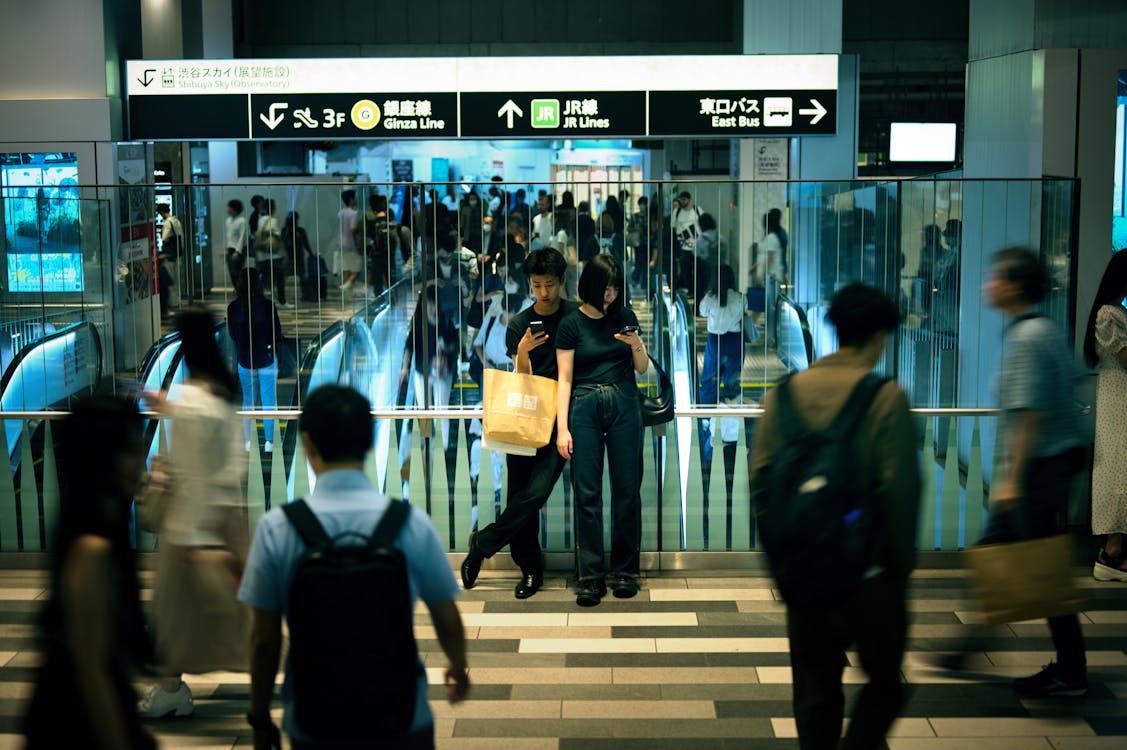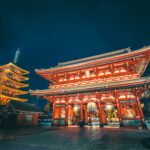Japan, known for its stunning landscapes, rich culture, and modern conveniences, offers unforgettable experiences for travelers. Ensuring a safe and enjoyable adventure requires understanding Japan’s unique travel infrastructure and local customs.
Japan provides safety and convenience, whether you are traversing its efficient public transportation system or touring gorgeous highways. These essential travel tips will help secure an exciting journey, offering safety and adventure through the Land of the Rising Sun.
Japan’s Efficient Public Transportation System
Japan’s public transportation system is praised for its punctuality, cleanliness, and reliability across various cities. Trains, buses, and subways provide efficient travel throughout Japan, connecting major cities and rural areas.
The Shinkansen, or bullet trains, are the highlight, offering fast travel between key cities like Tokyo and Osaka. Japan Rail Pass offers unlimited rail travel, making it ideal for tourists exploring different regions.
Lonely Planet notes that the Japan Rail Pass has seen significant price hikes, with increases of up to 77% for some passes. For travelers planning to visit Tokyo, Kyoto, and Hiroshima, the pass may still offer value. However, for those with fewer destinations, it might be more economical to buy individual tickets.
Travelers should plan their trips in advance to take full advantage of the country’s efficient system. Most stations offer signs and instructions in English, easing navigation for international visitors.
How accessible is public transportation for disabled travelers?
Japan’s public transit system is extremely accessible, with many stops featuring elevators and ramps. Wheelchair-accessible seating is available on buses and trains, and station personnel are always helpful. However, travelers should check specific routes or stations in advance for any additional accessibility needs.
Navigating Japan’s Roadways
Driving through Japan provides a unique experience and is a great way to explore the country. Japan’s roadways are safe, with clear signage and well-maintained infrastructure, ensuring safety for all travelers.
When comparing Japan’s roadways to those in the United States, major differences in driving conditions emerge. In some U.S. cities, like St. Louis, driving behavior is less predictable, leading to accidents.
FOX2 reports that St. Louis is one of the cities with the worst drivers, according to a 2023 study. The analysis examined factors such as crash fatalities, bad driving, alcohol use, and speeding. St. Louis ranks high for accidents caused by aggressive driving, contributing to its reputation for dangerous road conditions.
Aggressive driving, distracted driving, and poorly maintained roads contribute to the high accident rates in cities like St. Louis. In such dangerous situations, a St. Louis car accident attorney can help navigate legal complexities after a crash.
According to TorHoerman Law, these attorneys assist plaintiffs in obtaining reimbursement for medical expenditures linked to their car accident injuries. They also assist in recovering lost wages that result from being unable to work after an accident. Victims may also be entitled to compensation for pain and suffering caused by the accident and injuries.
In contrast, Japan’s strict road safety laws and more predictable driving behavior reduce the risks significantly.
Are there toll roads in Japan?
Yes, Japan has many toll roads, particularly expressways connecting major cities. The toll system can be paid via electronic toll collection (ETC) cards, which are available for rental with your vehicle. It’s important to budget for toll costs when planning long-distance road trips within Japan.
Understanding the Safety of Japan’s Air Travel
Japan’s air travel network is safe, efficient, and easy to navigate for international travelers. Major airports like Narita, Kansai, and Chubu serve as gateways to Japan’s beautiful cities.
Airlines like ANA and Japan Airlines are known for their excellent safety standards, ensuring a smooth flying experience. Domestic flights in Japan are short and convenient, offering quick connections between major cities.
CNBC mentions that Japan Airlines ranks highest among international airlines, with an overall score of 8.28. The airline scored 4 out of 5 for meals, seat comfort, staff service, and entertainment. Japan Airlines boasts an 88.36% on-time arrival rate, serving 220 destinations across 35 countries worldwide.
To get the best deals, travelers should book their tickets early, especially during peak seasons. Japan’s airports have excellent security and cleanliness standards, which contribute to the overall safety and comfort of air travel.
What are Japan’s baggage handling policies?
Japan Airlines and other major airlines have strict baggage policies that align with international standards. Passengers are allowed one or two checked bags, depending on the class of service. Additional baggage or overweight items will incur extra fees, so it’s advisable to check baggage limits in advance.
Staying Safe in Japan’s Urban Environments
Japan’s urban environments, such as Tokyo and Osaka, are renowned for their low crime rates. These cities are among the safest places to visit, with a low occurrence of violent crime.
TheTravel highlights that in 2023, Tokyo ranked among the ten safest cities to visit in the world. Osaka also held a spot among the top ten safest cities for travelers. Both cities offer tourists a secure environment for exploring and enjoying their rich cultural experiences.
Even in busy areas like Shibuya, travelers can feel safe walking alone at night. Street signs in major cities are often bilingual, making it easier for international travelers to navigate. Public spaces are clean and orderly, contributing to a welcoming atmosphere for tourists.
Visitors should remain attentive, especially in busy locations, to avoid pickpockets.
Is there anything I should know about cultural practices to ensure my safety?
Japan has a very polite culture, and tourists should follow local conventions to stay safe. For example, speaking loudly in public or using mobile phones in quiet places may be considered rude. It is recommended to remove shoes before entering residences or religious spaces.
Japan offers more than just cultural richness; it’s built on exceptional safety and efficiency. Its transport systems and societal norms ensure a seamless, secure travel experience. The contrast with regions facing traffic hazards highlights Japan’s commitment to order and safety.
Embracing local etiquette helps travelers fully enjoy Japan’s well-organized infrastructure. With reliable services in place, tourists can explore with peace of mind. The combination of adventure and safety makes Japan a unique destination. Travelers can immerse themselves in its vibrant culture without worrying about potential risks.









